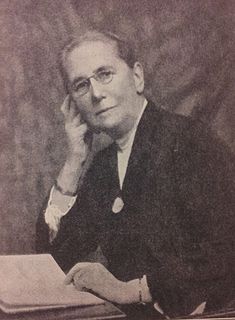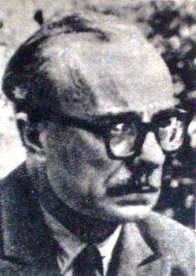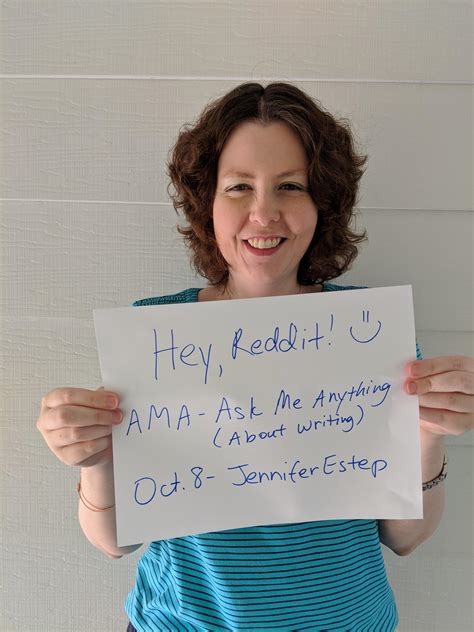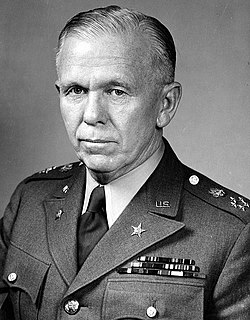Top 385 Horrors Quotes & Sayings - Page 7
Explore popular Horrors quotes.
Last updated on November 16, 2024.
I received a wonderful email after I spoke at a school from a girl who'd lived in a war zone and endured horrors no human being should suffer, let alone a child. This young lady was fortunate to be bought to Britain and seemed to adjust well, but suddenly found herself falling off the rails and sliding into hell when I chatted to her. In her letter, she told me the difference that I'd made. She's now 20 years old and a fashion designer employing staff and she puts her work ethic down purely to talking to me. It's my most treasured letter.
In the past 20 years alone, it adds up to more death than were caused by all the civil and international wars adn government repression of the entire twentieth century, the century of Hitler and Stalin. How much would we give to prevent those horrors? Yet how little are we doing to prevent today's even larger toll and all the misery that it involves? I believe that if you read this book to the end, and look honestly and carefully at our situation, assessing both the facts and the ethical arguments, you will agree that we must act.
I thought about the earth then, really thought about it, the tsunami's and earthquakes and volcanoes, all the horrors I haven't witnessed but have changed my life, the lives of everyone I know, all the people I'll never know. I thought about life without the sun, the moon, stars, without flowers and warm days in May. I thought about a year ago and all the good things I'd taken for granted and all the unbearable things that had replaced those simple blessings. And even though I hated the thought of crying in from of Syl, tears streamed down my face.
The storyteller is deep inside everyone of us. The story-maker is always with us. Let us suppose our world is attacked by war, by the horrors that we all of us easily imagine. Let us suppose floods wash through our cities, the seas rise . . . but the storyteller will be there, for it is our imaginations which shape us, keep us, create us - for good and for ill. It is our stories that will recreate us, when we are torn, hurt, even destroyed. It is the storyteller, the dream-maker, the myth-maker, that is our phoenix, that represents us at our best, and at our most creative.
Ruthless man: you begin by slaying the animal and then you devour it, as if to slay it twice. It is not enough. You turn against the dead flesh, it revolts you, it must be transformed by fire, boiled and roasted, seasoned and disguised with drugs; you must have butchers, cooks, turnspits, men who will rid the murder of its horrors, who will dress the dead bodies so that the taste decieved by these disguises will not reject what is strange to it, and will feast on corpses, the very sight of which would sicken you.
Before getting to my mother's house, I would always think of her on the porch or even on the street, sweeping. She had a light way of sweeping, as if removing the dirt were not as important as moving the broom over the ground. Her way of sweeping was symbolic; so airy, so fragile, with a broom she tried to sweep away all the horrors, all the loneliness, all the misery that had accompanied her all her life.
In almost every musical ever written, there's a place that's usually about the third song of the evening - sometimes it's the second, sometimes it's the fourth, but it's quite early - and the leading lady usually sits down on something; sometimes it's a tree stump in Brigadoon, sometimes it's under the pillars of Covent Garden in My Fair Lady, or it's a trash can in Little Shop of Horrors... but the leading lady sits down on something and sings about what she wants in life. And the audience falls in love with her and then roots for her to get it for the rest of the night.
It was not Christianity which freed the slave: Christianity accepted slavery; Christian ministers defended it; Christian merchants trafficked in human flesh and blood, and drew their profits from the unspeakable horrors of the middle passage. Christian slaveholders treated their slaves as they did the cattle in their fields: they worked them, scourged them, mated them , parted them, and sold them at will. Abolition came with the decline in religious belief, and largely through the efforts of those who were denounced as heretics.
Whether we are aware of it or not, every act of trust carries with it a shiver of fear. A favorable situation can become dangerous. Deep down we know that life is insecure and precarious. However, if we do trust, the shiver carries with it a philosophical optimism: Life, with all its traps and horrors, is good The bet is implicit in trust itself. If we could be sure of everyone and everything, trust would have no value - like money, if it were suddenly limitless, or sunshine, if there were always fine weather, or life, if we were to live forever
There are no ordinary people. You have never talked to a mere mortal. Nations, cultures, arts, civilizations - these are mortal, and their life is to ours as the life of a gnat. But it is immortals whom we joke with, work with, marry, snub and exploit - immortal horrors or everlasting splendors. This does not mean that we are to be perpetually solemn. We must play. But our merriment must be of that kind (and it is, in fact, the merriest kind) which exists between people who have, from the outset, taken each other seriously - no flippancy, no superiority, no presumption.
We human beings cause monstrous conditions, but precisely because we cause them we soon learn to adapt ourselves to them. Only if we become such that we can no longer adapt ourselves, only if, deep inside, we rebel against every kind of evil, will we be able to put a stop to it. ... while everything within us does not yet scream out in protest, so long will we find ways of adapting ourselves, and the horrors will continue.
Just as the office worker dreams of murdering his hated boss and so is saved from really murdering him, so it is with the author; with his great dreams he helps his readers to survive, to avoid their worst intentions. And society, without realizing it respects and even exalts him, albeit with a kind of jealousy, fear and even repulsion, since few people want to discover the horrors that lurk in the depths of their souls. This is the highest mission of great literature, and there is no other.
The burden of all song and praise "unto the Highest" has been that God stands for justice and mercy. Yet injustice among men is ever on the increase; the outrages committed against the masses in this country alone would seem enough to overflow the very heavens. But where are the gods to make an end to all these horrors, these wrongs, this inhumanity to man? No, not the gods, but MAN must rise in his mighty wrath. He, deceived by all the deities, betrayed by their emissaries, he, himself, must undertake to usher in justice upon the earth.
In all great works of fiction, regardless of the grim reality they present, there is an affirmation of life against the transience of that life, an essential defiance. This affirmation lies in the way the author takes control of reality by retelling it in his own way, thus creating a new world. Every great work of art, I would declare pompously, is a celebration, an act of insubordination against the betrayals, horrors and infidelities of life. The perfection and beauty of form rebels against the ugliness and shabbiness of the subject matter.
To write a book such as Tiger Bone & Rhino Horn is a formidable undertaking. You must accumulate thousands of facts and spare no detail, no matter how terrible. It is always easier to write a piece of fluff and leave everybody smiling. But then, the horrors of poaching would continue unchallenged?like as tent caterpillars consuming an apple orchard, our species mindlessly consumes the others of the earth. At present, the most significant hope for our planet may be knowledge, and Richard Ellis has done a heroic job in providing a large measure of that.
Progress has brought us both unbounded opportunities and unbridled difficulties. Thus, the measure of our civilization will not be that we have done much, but what we have done with that much. I believe that the next half century will determine if we will advance the cause of Christian civilization or revert to the horrors of brutal paganism. The thought of modern industry in the hands of Christian charity is a dream worth dreaming. The thought of industry in the hands of paganism is a nightmare beyond imagining. The choice between the two is upon us.
You picked that out?” Caine asked. “That pink, plastic toy?” I turned to look at him. “I happen to have been a little girl, once upon a time, detective. I know what they like. Every little girl wants to be a princess.” A thoughtful frown overcame the angry tension on Caine’s rugged face. “And what happens when they grow up?” I thought of my mother and sisters and all the horrors that had happened the day they’d died. A bitter laugh escaped from my tight lips. “Then they just want to be little girls again.
she, with her affection and her gaiety, had been largely responsible for him having rediscovered the meaning of life, her love had driven him to the far corners of the Earth, because he needed to be rich enough to buy some land and live in peace with her for the rest of their days. It was his utter confidence in this fragile creature, that had made him fight with honor, because he knew that after a battle he could forget all the horrors of war in her arms, and that, despite all the women he had known, only there in her arms could he close his eyes and sleep like a child.
But the young educated adults of the 90s -- who were, of course, the children of the same impassioned infidelities and divorces Mr. Updike wrote about so beautifully -- got to watch all this brave new individualism and self-expression and sexual freedom deteriorate into the joyless and anomic self-indulgence of the Me Generation. Today's sub-40s have different horrors, prominent among which are anomie and solipsism and a peculiarly American loneliness: the prospect of dying without once having loved something more than yourself.
The first person who, having enclosed a plot of land, took it into his head to say this is mine and found people simple enough to believe him was the true founder of civil society. What crimes, wars, murders, what miseries and horrors would the human race have been spared, had some one pulled up the stakes or filled in the ditch and cried out to his fellow men: "Do not listen to this imposter. You are lost if you forget that the fruits of the earth belong to all and the earth to no one!
I do not care if they do not like me," he said. "Maybe then they will let me alone, and I will not have to stay in China." The thought visibly struck him, and his head came up with sudden enthusiasm. "If I were very offensive, do you suppose they would go away now?" he asked. "Laurence, what would be particularly insulting" Hammond looked like Pandora, the box open and horrors loose upon the world. Laurence was inclined to laugh, but he stifled it out of sympathy.
There has been considerable comment over the awarding of the Nobel Peace Prize to a soldier. I am afraid this does not seem as remarkable to me as it quite evidently appears to others. I know a great deal of the horrors and tragedies of war. ... The cost of war in human lives is constantly spread before me, written neatly in many ledgers whose columns are gravestones. I am deeply moved to find some means or method of avoiding another calamity of war.
A little patience, and we shall see the reign of witches pass over, their spells dissolve, and the people, recovering their true sight, restore their government to its true principles. It is true that in the meantime we are suffering deeply in spirit, and incurring the horrors of a war and long oppressions of enormous public debt...If the game runs sometime against us at home, we must have patience till luck turns, and then we shall have an opportunity of winning back the principles we have lost, for this is a game where principles are at stake.
There is an alternative to terror. It is called, in the political order, democracy. In the economic order, it is called the dynamic enterprise economy. (...) It empowers poor people from the bottom up. (...) A dynamic economic sector is the poor's best hope of escaping the prison of poverty. It is the only system so far known to human beings to take poor people and make them, quite soon, middle class, and some of them even (horrors!) rich.
The good of the governed is the end, and rewards and punishments are the means, of all government. The government of the supreme and all-perfect Mind, over all his intellectual creation, is by proportioning rewards to piety and virtue, and punishments to disobedience and vice. ... The joys of heaven are prepared, and the horrors of hell in a future state, to render the moral government of the universe perfect and complete. Human government is more or less perfect, as it approaches nearer or diverges further from an imitation of this perfect plan of divine and moral government.























